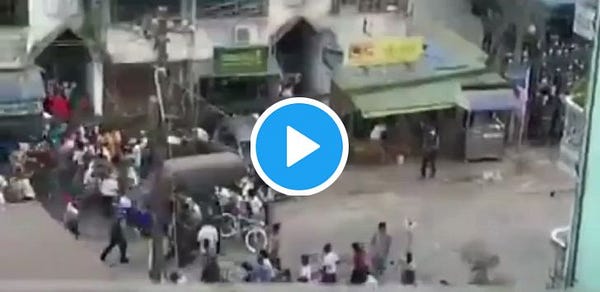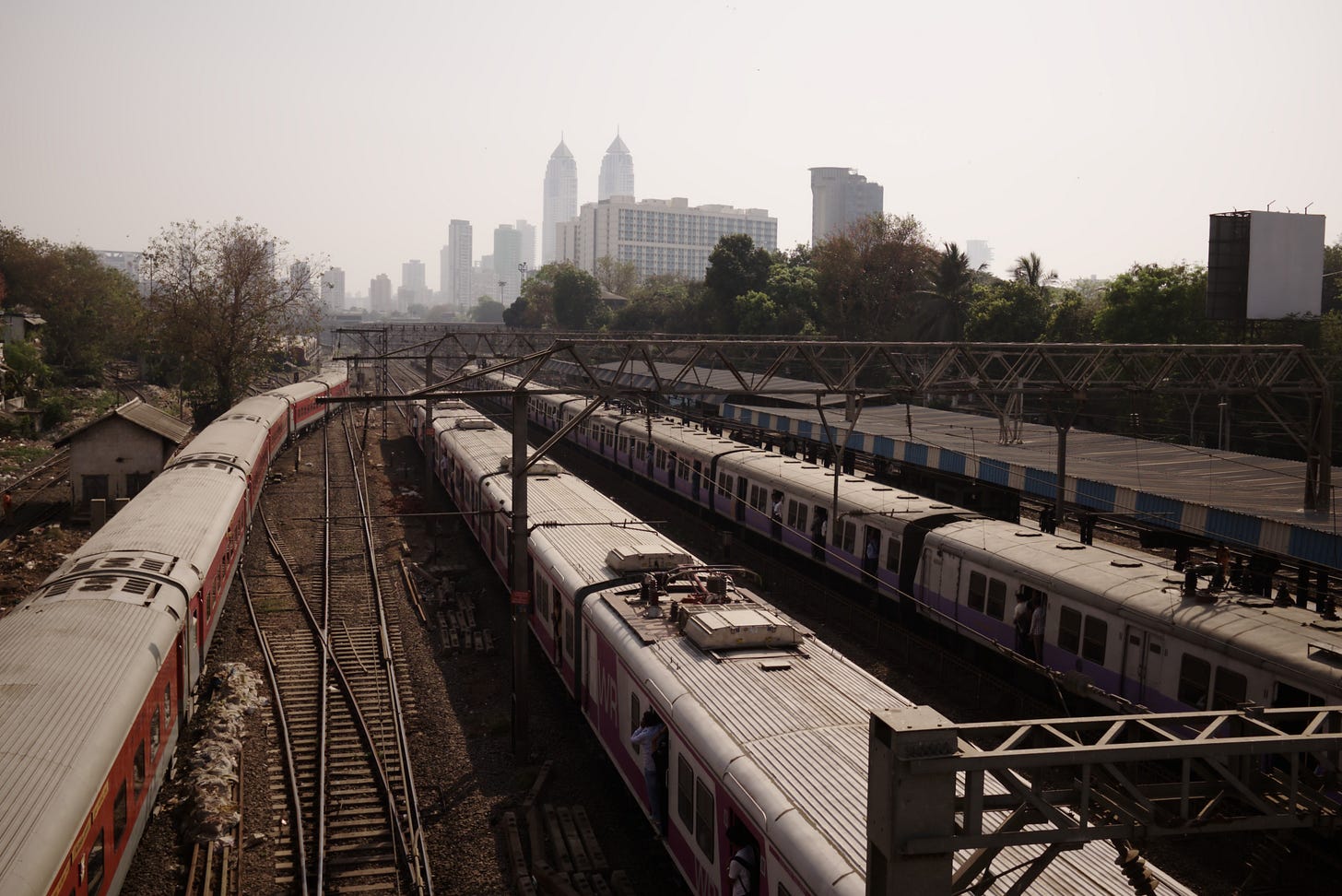Meanwhile in Cyberspace
China seems to have delivered a note of caution to India, buy shutting off its power
On October 13, Mumbai, India’s financial capital, came to a halt as electricity went out across the city for two hours. Now, an investigation by American cybersecurity company Recorded Future links the blackout to a surge of Chinese malware entering India’s electricity grid systems and seaports. First reported by The New York Times, Recorded Future’s chief operating officer Stuart Solomon said that RedEcho, the Chinese state-sponsored group behind the attack, “has been seen to systematically utilize advanced cyberintrusion techniques to quietly gain a foothold in nearly a dozen critical nodes across the Indian power generation and transmission infrastructure.”
Why India?
Last June, tensions between China and India escalated dramatically when a clash along the Sino-Indian border turned deadly for the first time in at least 45 years. Skirmishes in Ladakh, the border region, began in May 2020, but the dispute over where the Line of Actual Control lies goes back to the 1960s. Last year, India ramped up the construction of transportation infrastructure in Galwan Valley, an area that lies on both sides of control, allowing soldiers to travel through the dangerous mountainous terrain more easily. Meanwhile, China significantly increased the number of troops deployed along the border. The rising tension between the nuclear-powered economic and geopolitical rivals led India to ban several Chinese apps last year, including TikTok, over fears of espionage via data collection. Recorded Future also reports that since May, an increase in cyber espionage was seen by both sides.
Why the power grid?
Mumbai is home to 20 million people and India’s stock market. In October, it was also dealing with a surge in coronavirus cases, making it one of the worst-hit cities in the country. Power went out across Mumbai from 10 a.m. to 12 p.m. but some neighboring towns did not have their power restored until hours later. The blackout forced the stock market to abruptly close, trains to halt mid-track, but perhaps most importantly, hospital staff had to rush to switch on generators to keep ventilators, being used by an overflowing number of Covid-19 patients, running. At the time Indian authorities said they suspected the blackout was caused by a cyberattack. The government inquiry into the hack is ongoing.
So what?
Although Mumbai did not descend into complete chaos, the attack certainly raises the question as to whether this was Beijing’s way of warning New Delhi that provocations in Ladakh could have nationwide consequences. The Recorded Future report noted that while “the alleged link between the outage and the discovery of the unspecified malware” in the system “remains unsubstantiated,” there was evidence suggesting “coordinated targeting” of the Indian load dispatch centers that regulate regional electrical demands. India’s ministry of power said the malware has not interfered with the power system’s operations, nor has it caused a data breach, although Bloomberg reported on Wednesday that Red Echo malware is still targeting an Indian port.
China vehemently denies the attack. Chinese foreign ministry spokesperson Wang Wenbin denied the attack, tweeting, “As a staunch defender of cyber security, China firmly opposes and cracks down on all forms of cyber attacks.”


Recorded Future’s report came just days after the 10th round of China-India Corp Commander-level talks, wherein both sides agreed to the “smooth completion of disengagement of frontline troops in the Pangong Lake area,” another point of contention along the border. The report could further destabilize an already delicate diplomatic relationship.
You might be interested: Chinese Hacking Spree Hit an ‘Astronomical’ Number of Victims
Blocked, Restricted & Denied
As pro-democracy protesters continue staging unprecedented demonstrations across Myanmar, the nation’s month-old military government is using increasingly aggressive measures to crackdown on dissent. Several people have been killed over the past month as security forces used tear gas, water cannons, stun grenades, rubber bullets, and live rounds to disperse crowds. On Wednesday, 38 people died, marking the protest’s deadliest day yet.


But the military crackdown doesn’t just exist on the ground. The Tatmadaw (the military’s official name) is deploying technology people were allowed to purchase during Myanmar’s democratic years to ramp up state surveillance. Now, technology like hacking software and drones that orginated from Europe, Israel and the U.S. is available locally and being using by the Tatmadaw on the Burmese people. The junta also plans to invest in cybersecurity and forensics tools with assistance from China and Russia, amounting to what human rights researcher Ian Foxley calls, “electronic warfare capability stuff.”
Furthermoer, the Tatmadaw is drafting a cybersecurity law that would give them, “sweeping powers to block websites and cut off access to users deemed troublesome,” as well as access to user data.
Meanwhile, internet blackouts continue. Since the coup was launched on February 1, soldiers have raided data centers and Myanmar has experienced frequent telecommunication restrictions. Since February 15, the junta has imposed an overnight internet curfew, suspending services nationwide. The blocks and restrictions especially prohibit access to social media platforms like Facebook, Instagram, and Twitter, to try and stop people from organizing and spreading protest information.


On the flip side, on Thursday, Facebook banned accounts belonging to or associated with the Tatmadaw. “Events since the February 1 coup, including deadly violence, have precipitated a need for this ban,” said Rafael Frankel, a Facebook policy director, in a statement. “We believe the risks of allowing the Tatmadaw on Facebook and Instagram are too great.” On Friday, YouTube followed suit, removing five television channels run by the Tatmadaw from its site.
In Senegal, authorities blocked two TV channels and several social media platforms including Facebook, WhatsApp, and YouTube after a deadly clash between police and protesters in Dakar on Friday. Demonstrations were being held by supporters of Ousmane Sonko, a tax inspector turner politician, who believe the rape allegation being lodged against him is a political ploy, spearheaded by President Macky Sall’s government. Sonko, who is particularly popular among young people, was detained on Wednesday.
Watch this space
That’s it for this week’s edition of Meanwhile In! If you have any feedback or comments about today’s format please let me know- just hit reply to this email.
For more information and updates on these stories, follow us on Instagram.






